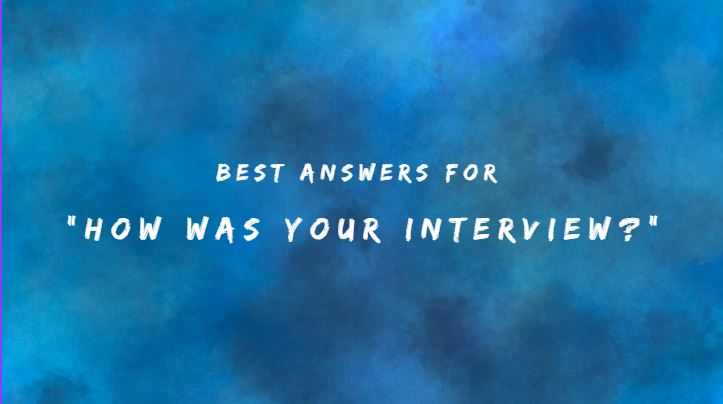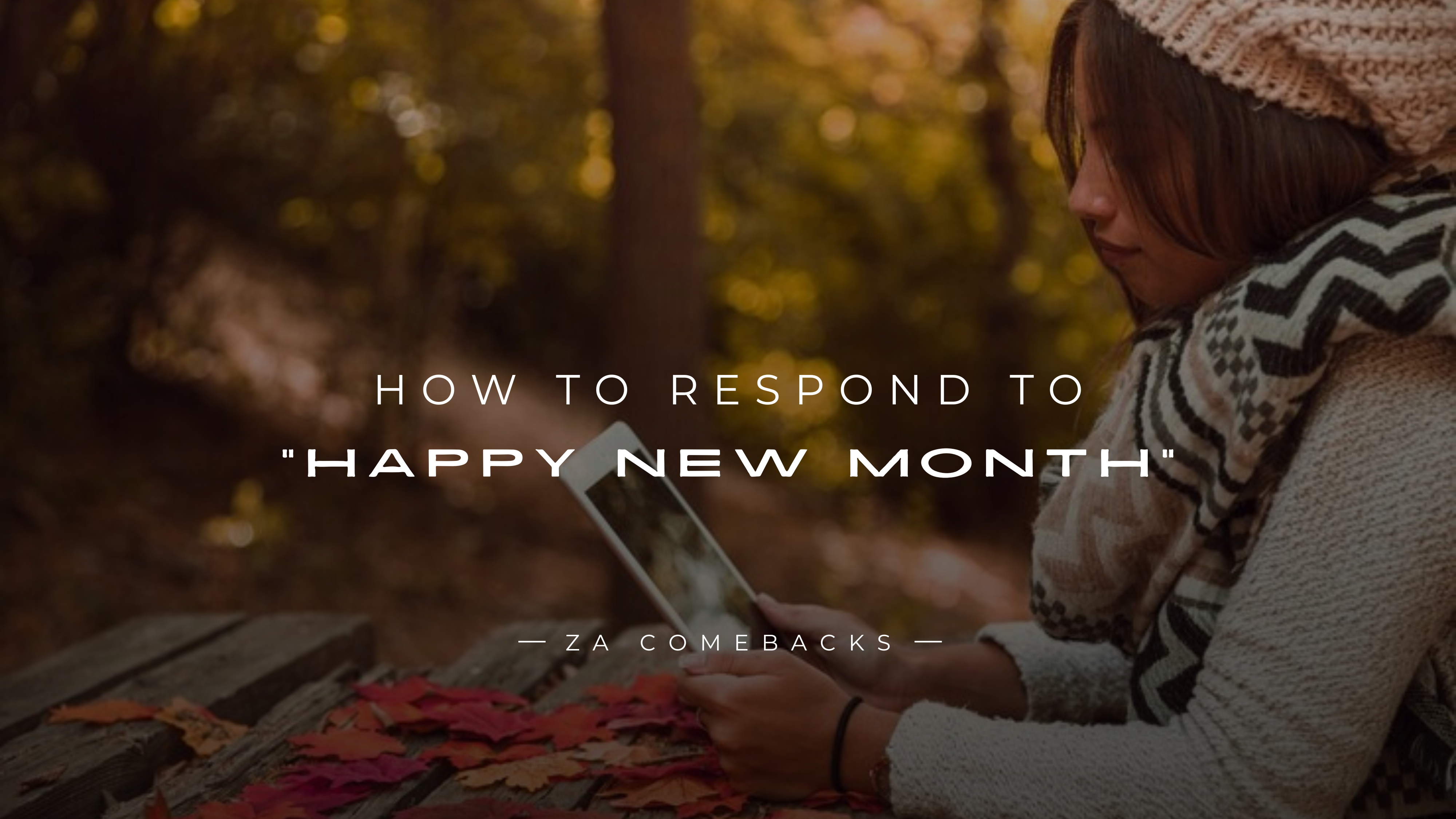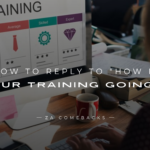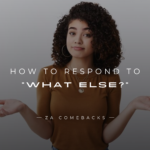You’ve just wrapped up an interview and likely feel excitement and nerves. Whether you’re speaking with a recruiter, a friend, or even just reflecting on the interview yourself, one question that might come up is, “How was your interview?” It might seem like a simple question, but it’s an opportunity to reflect on your performance and how to leverage that experience. This article will guide you through answering this question effectively, ensuring you come across as self-aware and professional.
Understanding the Question: “How Was Your Interview?”
When someone asks you, “How was your interview?” they’re looking to gauge your perspective on how things went. This question serves multiple purposes—it can help the interviewer understand your confidence level and ability to self-assess and even provide insight into areas where you might need improvement. Often, people misinterpret this question as a chance to either boast about their performance or complain about their experience. Instead, it’s about providing a balanced view of your experience.

150+ Best Answers To “How Was Your Interview?”
Positive Experiences
- The interview went great! I felt confident answering the questions and had a good rapport with the interviewer.
- The feedback from the interviewer was positive. They seemed impressed with my qualifications.
- Everything went smoothly. The interview was well-organized, and the questions were straightforward.
- I enjoyed the interview; it was a lively and stimulating conversation.
- The interviewer was very professional and respectful, which made the experience enjoyable.
- The interviewer was friendly and made me feel at ease throughout the interview.
- I learned a lot about the company’s culture and the role, which made me more excited about the opportunity.
- The interview was thorough, and I had the chance to showcase my skills effectively.
- The overall vibe was positive, and I connected well with the team.
- The interviewer gave me some encouraging signs that they were interested in moving forward with my application.
Neutral Experiences
- The interview was pretty average; nothing particularly stood out.
- It was a typical interview experience—neither particularly good nor bad.
- The process was standard and followed the usual format without any surprises.
- It felt like a routine interview, with common questions and answers.
- Everything went as expected; there were no major highlights or low points.
- It was a typical interview with expected questions and responses.
- The interaction could have been more engaging and off-putting.
- I received neutral feedback; it was neither overly positive nor negative.
- The interview was ordinary and didn’t leave a strong impression either way.
- The experience was balanced, with neither standout positives nor significant negatives.
Negative Experiences
- The interview was quite challenging; the questions were tougher than I anticipated.
- The interview could have been more organized, and there were some issues with the scheduling.
- I felt uncomfortable during the interview; it didn’t go as smoothly as I hoped.
- The overall experience was disappointing; the interviewer didn’t seem interested.
- I don’t think the interview went well. I struggled with some of the questions.
- The interviewer was dismissive, which made the experience quite unpleasant.
- I didn’t get a clear sense of what the role involved or what the company was looking for.
- There were technical issues during the virtual interview that disrupted the flow.
- Based on the interview, the role could better fit my skills and experience.
- The interview felt unprofessional; the interviewer needed to be more timely and prepared.
Follow-Up Specifics
- I’m still waiting to hear back from the company; they mentioned they’d be in touch within a week.
- The follow-up was prompt, and I received an update on the next steps the day after the interview.
- I was informed that I’d be contacted for a second round of interviews, which is encouraging.
- I haven’t received any feedback yet, but I hope to hear back soon.
- The company provided clear information about the timeline for its decision-making process.
- I received a follow-up email thanking me for the interview and outlining the next steps.
- There was a delay in the follow-up, but I finally got an update on my application status.
- I was pleasantly surprised by the quick turnaround in receiving feedback after the interview.
- The follow-up was vague; I’m unsure about the next steps or when to hear back.
- I got a call the day after the interview confirming their interest in moving forward.
Interview Dynamics
- The interview had a relaxed and conversational tone, which helped me feel more comfortable.
- The dynamic was tense; the interviewer seemed serious and focused on assessing my skills.
- The interview was very interactive, with lots of back-and-forth discussion and questions.
- The interviewer was very engaged and enthusiastic about the role and company.
- The interview felt one-sided; the questions were mostly about my experience, with little discussion.
- It was a panel interview, so I had to address multiple people, which made the dynamic more formal.
- The interviewer was very encouraging and seemed genuinely interested in my responses.
- The dynamic felt challenging as the interviewer probed deeply into my past experiences.
- A good balance of questions and discussion made it feel like a two-way conversation.
- The interview felt scripted; the questions and responses followed a pattern.
Preparation
- Having thoroughly researched the company and role, I felt well-prepared for the interview.
- I was under-prepared, as I didn’t have enough detailed knowledge about the company’s recent projects.
- I was over-prepared and had so much information that I needed help focusing on key points during the interview.
- I had prepared extensively, but some unexpected questions caught me off guard.
- My preparation was just right; I had a solid understanding of the role and could answer questions effectively.
- I should have spent more time preparing for specific technical questions related to the role.
- I felt confident in my preparation and was able to provide detailed and relevant examples.
- I didn’t feel as prepared as I wanted, but I addressed most questions adequately.
- My preparation was balanced and helped me handle the interview smoothly.
- I spent much time preparing for the interview, but the questions focused more on soft skills than anticipated.
Interviewer’s Style
- The interviewer was very personable and made the conversation feel like a friendly chat.
- The style was quite formal; the interviewer stuck to a structured list of questions.
- The interviewer’s style was very engaging; they encouraged much back-and-forth discussion.
- The interviewer’s approach was very relaxed and casual, which helped ease my nerves.
- The interviewer was very direct and to the point, focusing on specific competencies.
- The interviewer’s style was somewhat rigid; the questions felt rehearsed and mechanical.
- The interviewer was very approachable and asked questions in a way that made me feel comfortable.
- The interviewer was challenging, pushing hard on some of my answers to probe deeper.
- The interviewer’s style was collaborative, involving me in a discussion rather than just asking questions.
- The interviewer maintained a professional demeanor but was open to informal conversation, which balanced well.
Company Insight
- I gained valuable insights into the company’s culture and how the team operates.
- The interview provided a clear picture of the company’s values and mission, which I found motivating.
- I didn’t get much insight into the company’s culture, but learned about their recent projects.
- The interview offered much information about the company’s growth and future goals.
- I understood the company’s work environment and management style well.
- The interviewer was very open about the company’s challenges and how they’re addressing them.
- I didn’t get as much insight into the company’s culture as I hoped; the focus was more on the role.
- The interview gave me a detailed view of the company’s strategic direction and how this role fits.
- I felt the insights into the company were somewhat superficial; I’m still curious about the day-to-day work environment.
- The discussion helped me understand the company’s employee development and career growth approach.
Role Fit
- Based on what was discussed, the role perfectly fits my skills and career goals.
- I’m unsure if this role aligns with my career objectives, but it seems interesting.
- The role matches my experience well, though I’d like to learn more about some specific responsibilities.
- The role differs from what I expected; it may not fit my background best.
- The role is a great opportunity to leverage my skills and take on new challenges.
- I am concerned that the role might not fully utilize my strengths, but I’m still interested.
- The position aligns well with my career trajectory and interests, making it an appealing opportunity.
- I’m unsure if the role fits; some aspects diverged from my professional experience.
- The role matches my qualifications, but I need more clarity on certain aspects of the job.
- The discussion made me feel that this role could be a strong match for my skills and provide a good growth opportunity.
Interview Format
- The one-on-one interview allowed me a deep dive into my experience and skills.
- It was a panel interview with several team members, which provided diverse perspectives on the role.
- The interview was conducted as a series of phone screenings followed by an in-person meeting.
- It was a group interview with other candidates, which made the process quite competitive.
- The interview was a mix of behavioral and technical questions, which gave a balanced view of my abilities.
- It was a virtual interview with many technical difficulties, which affected the flow of the conversation.
- The format included a presentation where I had to showcase my skills, followed by a Q&A session.
- The interview was structured around a case study I had to analyze and discuss.
- It was a casual coffee chat, which made it feel more like a conversation than a formal interview.
- The format included a practical test that evaluated my problem-solving skills in real time.
Follow-Up Interaction
- The follow-up was quick and professional; I received a detailed email with the next steps the next day.
- I got a phone call a week after the interview with feedback and a timeline for the decision.
- The follow-up interaction was delayed, but I received a thoughtful email with the next steps.
- I was pleasantly surprised by the prompt follow-up, which included an invitation for a second round of interviews.
- The follow-up was brief, a confirmation that they received my interview materials and would be in touch.
- I received a follow-up email requesting additional information and confirming my continued interest.
- There was a significant delay in the follow-up, and I had to reach out for an update.
- The follow-up interaction was encouraging; they provided positive feedback and outlined the hiring process.
- I received a standard follow-up email that needed specific details about the next steps or timeline.
- The follow-up was smooth, and the recruiter responded to my inquiries about the interview status.
Assessment Component
- The interview included a practical assessment where I had to complete a task related to the role.
- During the interview, I was asked to solve a case study, which tested my problem-solving skills.
- There was a technical test as part of the interview process to evaluate my expertise in a specific area.
- The assessment component involved a presentation on a topic relevant to the role, which I felt confident about.
- I had to complete a written exercise that assessed my analytical and communication skills.
- The interview included a role-play scenario to see how I would handle real-life situations related to the job.
- There were no formal assessments; the interview focused more on discussing my background and experience.
- The assessment was a series of situational questions to gauge my problem-solving approach.
- I was given a practical problem to solve during the interview, which provided insight into my technical abilities.
- The assessment component was a group exercise where I collaborated with other candidates to solve a problem.
Company Image
- The company made a great impression with its modern office and innovative approach to technology.
- I was impressed by the company’s commitment to sustainability and community involvement.
- The company’s image was a bit mixed; the office was nice, but some aspects of the culture seemed less appealing.
- The company had a professional and forward-thinking image, aligning with my career goals.
- The company’s reputation for employee development and growth opportunities was evident in the interview.
- The company was very focused on results and efficiency, which is appealing and intimidating.
- The company is still growing and evolving, which could be exciting and challenging.
- The company’s image was quite traditional, and I’m unsure if it fits my more modern approach to work.
- I appreciated the transparency and openness of the company’s current challenges and how they are addressed.
- The company’s emphasis on work-life balance and employee well-being was a strong positive aspect.
Cultural Fit
- The company’s culture seems like a great fit for my working style and values, especially with its focus on collaboration.
- I’m unsure about the cultural fit; while the team was friendly, some aspects seemed different from what I’m used to.
- The company’s culture appears to be dynamic and innovative, which aligns well with my preferences.
- I felt a strong cultural fit; the emphasis on teamwork and continuous learning resonated with me.
- The culture seemed more competitive than I expected, which might be challenging for me to adapt.
- I’m excited about the company’s inclusive and supportive culture; it feels like a place where I could thrive.
- The culture seemed too laid-back; I prefer a more structured and fast-paced environment.
- The company values work-life balance and flexibility, which suits my personal needs well.
- The company’s focus on innovation and forward-thinking is a good cultural match for my work style.
- I’m unsure about the cultural fit; the company’s emphasis on hierarchy and formality differs from what I’m used to.
Expectations
- The interview exceeded my expectations; I felt well-prepared, and the discussion was engaging.
- The interview met my expectations; it was straightforward and covered all the relevant topics.
- I was underwhelmed; the interview didn’t quite live up to the hype I had heard about the company.
- The interview process was different from what I expected, but in a positive way, with more focus on my skills.
- The experience was as expected; the questions and format were typical.
- I had higher expectations for the interview, especially learning more about the company’s vision.
- The interview process was slightly more challenging than anticipated, but was a good experience overall.
- I expected a more in-depth discussion about the role, but the interview focused mainly on my background.
- The interview was exactly what I had anticipated and fairly represented the role and company.
- I was pleasantly surprised by how comprehensive and detailed the interview was compared to my initial expectations.
Preparing for the Post-Interview Question
Before you respond, take some time to reflect on your interview. Consider how you felt during different parts of the process and whether any particular moments stood out. Did you feel confident and well-prepared? Were there areas where you stumbled or felt unsure? You can craft a more accurate and thoughtful response by assessing your performance.
Crafting Your Response
Your response should be an honest reflection of your experience. It’s important to acknowledge both strengths and areas for improvement. For example, you might say, “I felt confident discussing my past experiences, but I realized I could have been clearer on my long-term career goals.” This shows self-awareness and a willingness to grow.
Structuring Your Answer
One effective way to structure your response is using the STAR method—Situation, Task, Action, and Result. This method helps you provide a clear and concise answer by focusing on specific examples of how you handled different aspects of the interview. For instance, you could say, “In the interview, I was asked to describe a challenging project (Situation). My task was to explain how I managed it (Task). I detailed the steps I took and the strategies I used (Action). As a result, the interviewer gave me positive feedback about my problem-solving skills (Result).”
Responding to “How Was Your Interview?” in Different Scenarios
- If You Felt the Interview Went Well
If the interview went smoothly and you’re feeling positive, your response could be, “I felt really good about the interview. I could clearly articulate my experiences and felt that the interviewer was engaged and interested in my background.” - If You Think the Interview Was Challenging
For a challenging interview, “The interview was a bit more challenging than I anticipated. I struggled with a few questions but provided strong answers and learned much from the experience.” - If You Are Unsure About Your Performance
If you’re unsure how things went, a balanced response could be, “I’m not entirely sure how I did, but I think I covered most of the key points. I look forward to feedback and am eager to improve.”
Common Mistakes to Avoid
- Overly Negative Responses
Avoid being overly negative about your experience. Comments like, “It was a disaster,” can leave a bad impression. Focus on constructive feedback instead. - Inaccurate Self-Evaluations
Be honest but accurate. Avoid claiming you did well in areas where you struggled or downplaying your strengths. - Giving Too Much Detail
While being specific is good, avoid overloading your response with unnecessary details. Keep it focused and relevant.
How to Handle Follow-Up Questions
Be prepared for follow-up questions that delve deeper into your interview experience. Maintain a positive tone and stay professional. If asked about specific challenges, focus on how you addressed them and what you learned.
The Role of Body Language and Tone
Your body language and tone of voice can greatly influence how your response is received. Maintain a confident posture and a positive tone to convey professionalism and self-assurance.
The Impact of Your Response on Future Opportunities
How you respond to “How was your interview?” can influence how others perceive you. A thoughtful and balanced answer can highlight your professionalism and self-awareness, potentially enhancing future opportunities.
Conclusion
In conclusion, mastering the art of responding to “How was your interview?” can significantly impact your professional image and future opportunities. With our 150+ tailored answers, you can handle this common question with confidence and poise. Remember, your response can reflect your enthusiasm and professionalism, so choose wisely. For more tips on navigating social interactions,
Check out our guide on:
Best Replies to “Long Time No See” with 150+ responses
FAQs
Q. What if I Can’t Remember Specifics About the Interview?
Focus on general impressions and key takeaways. It’s okay to be a bit vague if specifics are unclear.
Q. How Can I Improve My Response for Future Interviews?
Practice reflecting on your interviews and structuring your responses using frameworks like STAR. Seek feedback and adjust based on that.
Q. Should I Always Give a Detailed Answer?
Not necessarily. Tailor your response to the context and audience. Be concise but informative.
Q. What If My Interview Was Bad?
Focus on what you learned from the experience and how you plan to address shortcomings.
Q. How Do I Stay Positive During the Response?
Emphasize what went well and frame any challenges as opportunities for growth and learning.










